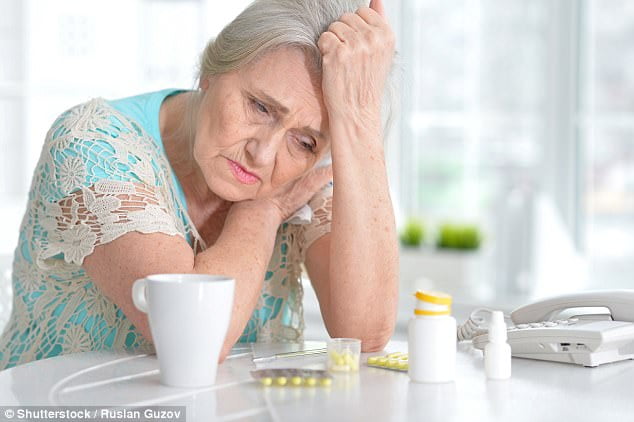Drug information leaflets must be improved so they can be more easily read and understood, a report claims.
The Academy of Medical Sciences has called for the pamphlets that come in medicine boxes to be made clearer to ensure ‘comprehension and readability’ for patients.
Drug leaflets should also include information on the benefits of taking a medicine, and not just a ‘laundry list’ of the potential harms, it adds in its report.
Professor John Tooke, chair of the report, said: ‘The patient information leaflet does not provide a balanced appraisal of the benefits and harms of medicines and was described in our public dialogue as being “impenetrable” and “unreadable”.’
The Academy has released a series of potential questions that the public can ask their doctor to help them make an informed decision about whether to take certain medicines.

Drug information leaflets must be improved so they can be easily understood, experts claim
Unclear information leaflets
Professor Tooke said: ‘The one piece of information that patients are guaranteed to receive – the patient information leaflet – does not provide a balance appraisal of the benefits and harms of medicines and was described in our public dialogue as being “impenetrable” and “unreadable”.
‘As far as patient information leaflets are concerned there is currently an obligation for industry to expose the risks, which is why they predominate this laundry list of side effects.
‘That’s a regulatory requirement and we’re saying that the regulation needs to serve the user and therefore what they need too is a balanced view of the potential harms and benefits.’
The Academy recommends patients ask their doctor questions, such as ‘How will this medicine make me feel? Will it affect my daily life?’, to aid their decision-making regarding whether to take certain medications, the BBC reported.
Patients trust friends more than science
The report, released yesterday, also revealed patients are more likely to trust the opinions of their family and friends than the results of clinical trials when it comes to the safety and effectiveness of their medication.
The Academy surveyed 2,041 members of the public and 1,013 GPs about their attitudes towards medical research.
Results revealed that 63 per cent of the public and 82 per cent of GPs are sceptical of claims made by drugs trials.
Many have major doubts following a series of scares over the safety of hormone replacement therapy (HRT), cholesterol-lowering statins and the antiviral drug Tamiflu.
The findings also demonstrate just 37 per cent of the public trust evidence from medical research, while 65 per cent value the opinion of friends and family.
Perhaps surprisingly, 82 per cent of GPs believe medical research is biased in favour of drugs appearing effective and safe.

Just 37 per cent of the public trust medical research, yet 65 per cent value friends’ advice .
Risks of unclear information
Sir John Tooke, report chairman, said: ‘We all need medicines at some point in our life yet the decision as to whether to use a drug or not can be a confusing one as illustrated by numerous controversies played out in recent years – in relation to the use of statins to reduce the risk of strokes and heart disease; the risks and benefits associated with hormone replacement therapy and Tamiflu in the treatment of influenza.
‘Questions raised about the risk and benefit balance of being on statins were associated with large numbers of people stopping the drugs from which it has been inferred there could be 2,000 excess strokes and heart attacks over the next 10 years in the UK, so there can be health consequences from the result of confusion.
‘It is our view that unless we improve the use of scientific evidence to judge the potential harms and benefits of medicines, both established and new, patients will not reap the full advantage of scientific advance.’
He said: ‘It’s startling to hear that only about a third of the public trust medical research.
‘Patients are struggling to make sense of the information they receive from their doctor, the TV, the internet and their friends and family about medicines.
‘With our ageing population and ever more sophisticated treatments being made available, we need to act now to give patients clearer and more useful information about the medicines they take.’
Why the confusion?
As well as the ongoing debate about whether the insomnia and muscle weakness side effects of statins outweigh its cholesterol-lowering properties, there is similar confusion regarding HRT for the menopause and whether it causes breast cancer.
The NHS has claimed the benefits outweigh the risk, yet surveys have shown the majority of women are still very sceptical.
In addition, research published back in 2009 claimed that ‘more than half of children taking Tamiflu to combat swine flu suffer side effects such as nausea, insomnia and nightmares’.
Professor Dame Sally Davies, the Chief Medical Officer for England, said: ‘Medical science is progressing at an unprecedented rate, opening up opportunities not only to cure certain diseases but potentially to prevent them ever occurring.
‘It is vital that we find the best possible ways to use and communicate scientific evidence, so that progress may be translated into benefits for patients.’
[“Source-ndtv”]
